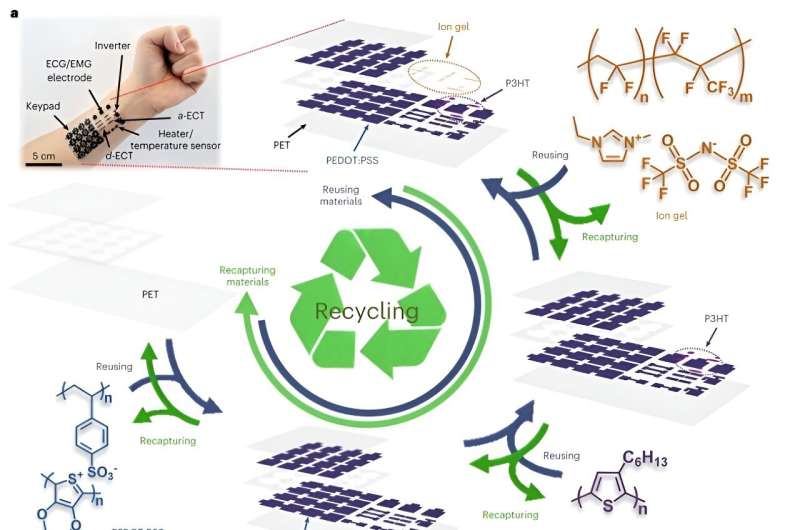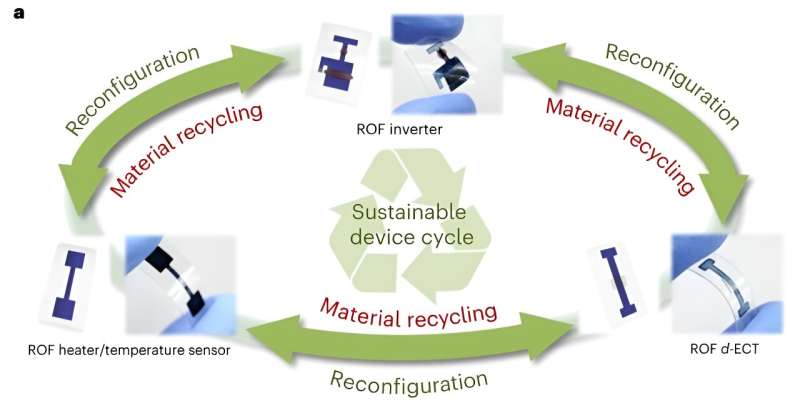This article has been reviewed according to Science X's editorial process and policies. Editors have highlighted the following attributes while ensuring the content's credibility:
fact-checked
peer-reviewed publication
trusted source
proofread
Closed-loop recycling of organic flexible electronic devices paves way for sustainable wearable electronics

A research team led by Professor Kyoseung Sim in the Department of Chemistry at UNIST has achieved a milestone in sustainable wearable devices. Their cutting-edge method enables closed-loop recycling of organic electronic materials, addressing environmental concerns and paving the way for a sustainable future in the electronic device industry.
The study, with Haechan Park as the first author, was published in Nature Electronics on December 6, 2023.
The synthesis of organic electronic materials has historically been associated with hazardous solvents, toxic by-products, and significant environmental and economic costs. However, this groundbreaking research has unlocked the potential for recycling and repurposing organic conductors, semiconductors, and gate dielectrics in an eco-friendly and economically viable manner.
The closed-loop recycling, introduced by the research team, incorporates eco-friendly solvents, such as water, anisole, and acetone, throughout the fabrication and recycling processes. By eliminating the reliance on harmful substances, this innovation represents a significant stride towards sustainable manufacturing and recycling practices for organic flexible electronic devices.
To demonstrate the capabilities of this approach, the team successfully created a range of recyclable organic flexible electronic devices, including electrophysiological sensing electrodes, keypads, heaters/temperature sensors, electrochemical transistors, and inverters. Moreover, they established a sustainable device cycle by reconstructing various organic flexible electronics using recycled materials from different functional devices, without the need for additional resources.

Thorough evaluations of the recyclability of the organic electronic materials have yielded remarkable results. Organic conductors demonstrated the ability to be recycled more than five times, organic insulating gels could be reused more than 30 times, and organic semiconductors showed a recycling potential of approximately one cycle.
"This study offers the first solution to the environmental challenges posed by the use of organic electronic materials in the electronics industry," stated Professor Sim. "The outcomes of this research are expected to be a pivotal milestone and a key technology that shapes the future of sustainable electronic devices."
More information: Haechan Park et al, Organic flexible electronics with closed-loop recycling for sustainable wearable technology, Nature Electronics (2023). DOI: 10.1038/s41928-023-01078-9
















